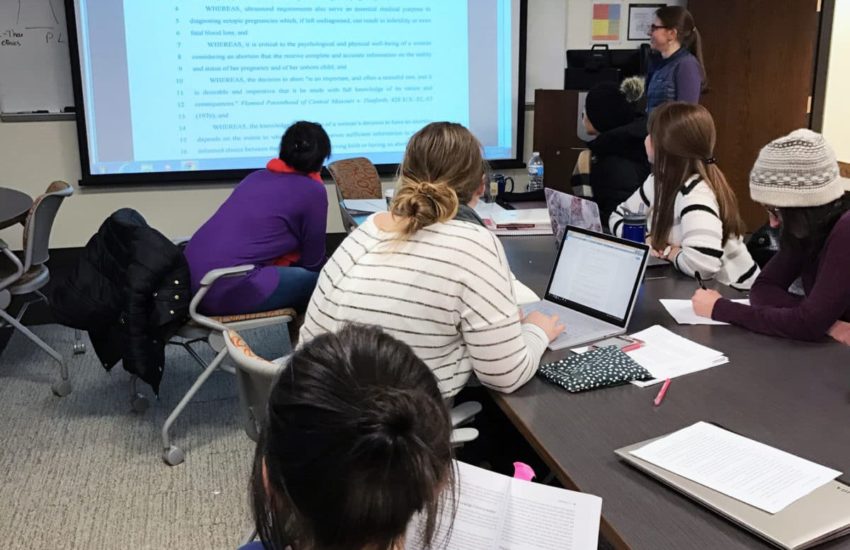Community service is at the core of DePaul’s mission toward Vincentian values and social justice. In the MA WRD program, our courses can contribute to this service through the use of community partnerships in the classroom. In the Winter 2016 quarter, Professor Sarah Read is teaching WRD 523: Editing, and students are working with community organizations, giving back to the greater Chicago community while developing skills in editing, copywriting, and technical communication.
Learning the Skills
This is the third time that Prof. Read has taught this class at the graduate level, which she says focuses on “the immediate professionalization of editing.” The course syllabus discusses motivating questions for work in the class: what editing is, who does it, how it’s accomplished, and its ethical implications—these ideas also drive the course objectives. In gaining an understanding of editing in this way, Prof. Read hopes that students will leave the class knowing that “the bottom line to learning about editing is to understand it as a decision-making process.” She teaches the class with this in mind, equipping students with the skills they need to recognize editorial changes, justify them with outside resources, and communicate them accordingly.
Community Partnership
As a course in the Professional and Digital Writing track, Editing aims to prepare students for professional work and to develop the skills needed to continue building organizational knowledge in future endeavors. Prof. Read says, “I’m always looking for ways to get students connected to real-world situations to allow them to put theory and skills from class to work.” Through the Steans Center, Prof. Read partnered her class with community nonprofits. The practicality of the course is a draw, as graduate student Kelsey Bolger explains: “Editing is a useful skill that I can put on a resume, and because we’re working directly with a nonprofit, I have something to put in my portfolio.” The culminating project of the course, a team-written editorial style guide, provides a direct application of learned skills to benefit both the students and their community partners.
Organizational Knowledge
Along with the core editing skills, students learn organizational knowledge that will help them prepare for future team-based or nonprofit work. The final project, Prof. Read says, requires students to build knowledge about all the ways in which style guides vary, and Bolger adds that, as a student, learning to work with people for a common cause has been a big takeaway from the course. Editing helps students develop a number of writing and communication skills, with the added importance of giving back to the community. Bolger sums up that, “We’re not just doing something for us or for a professor; we’re doing something for people that will be useful, that they can incorporate into their business.” This element of community significance is both motivating and gratifying: “There’s a lot more pressure and expectation,” Bolger says, “but it’s also a lot more rewarding.”
